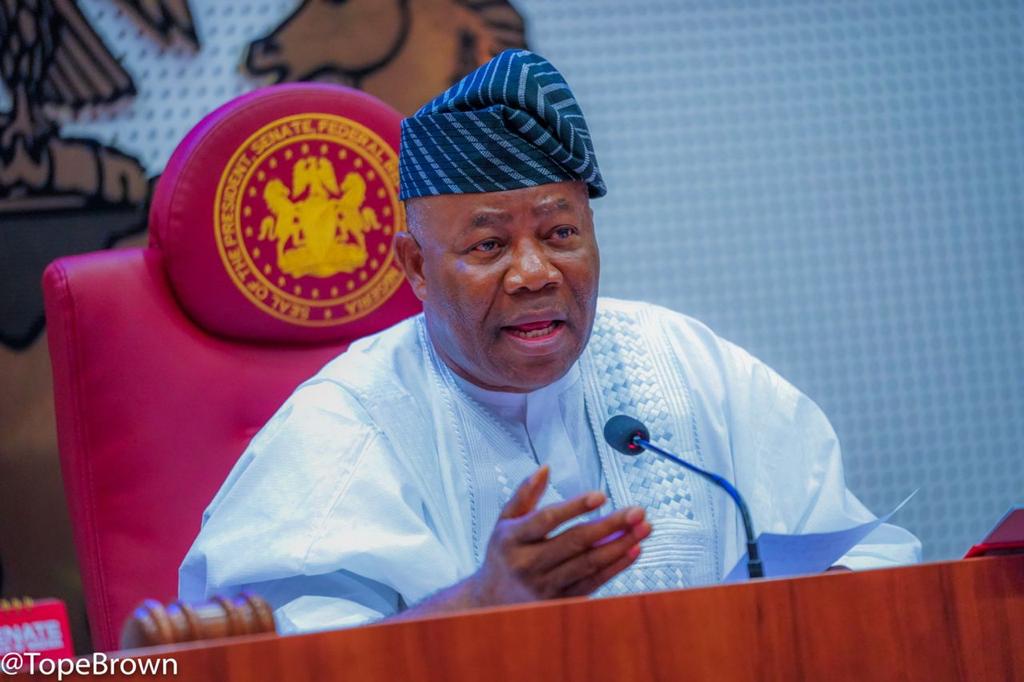
The Nigerian Senate has approved President Bola Tinubu’s ₦1.77 trillion ($2.2 billion) loan request to partially fund the country’s ₦9.7 trillion budget deficit for the 2024 fiscal year.
The approval came after a voice vote during a session presided over by Deputy Senate President Barau Jibrin, following the presentation of the Senate Committee on Local and Foreign Debts’ report by Senator Wammako Magatarkada (APC, Sokoto North).
The loan forms part of a fresh external borrowing plan to bridge Nigeria’s widening fiscal gap, but it raises concerns over the growing burden of debt servicing on the government.
In August, a report from investment management company Afrinvest predicted that Nigeria’s public debt would rise to ₦130 trillion by December 2024.
This means an increase from ₦121.67 trillion in the first quarter of this year. The “Bank Recapitalisation, Catalyst for a $1tn Economy” report shows growing concerns about the country’s debt-to-GDP ratio.
Also, recent reports from the Central Bank of Nigeria (CBN) reveal that the federal government spent $3.58 billion servicing foreign debts in the first nine months of 2024, a 39.77% increase from the $2.56 billion recorded during the same period in 2023.
The CBN’s statistics highlight a sharp rise in debt servicing costs. In January 2024 alone, a 398.89% surge in payments was recorded, amounting to $560.52 million compared to $112.35 million in January 2023.
Although February saw a slight dip of 1.84%, with payments dropping to $283.22 million from $288.54 million in the previous year, April recorded a significant 131.77% spike, rising to $215.20 million from $92.85 million in 2023.
May 2024 marked the highest monthly payment, with $854.37 million spent on foreign debt servicing—a staggering 286.52% increase from $221.05 million in May 2023.
Read Also: Nigeria Becomes Third-Largest Debtor to World Bank’s IDA, Overtakes India
Rema and Seun Kuti to Shine at Coachella 2025
Conversely, some months recorded declines: June saw a 6.51% drop, and July recorded a 15.48% decrease compared to their respective periods in 2023. However, September 2024 saw an uptick, with payments climbing 17.49% to $515.81 million, up from $439.06 million in September 2023.
These rising debt servicing costs have fueled concerns about Nigeria’s fiscal sustainability despite the increase in inflation and the cost of living.
About The Author
Related Articles
Tinubu Government Delays Release of Signed Tax Acts to the Public
Four days after President Bola Tinubu announced the signing of four tax...
ByMayowa DurosinmiJune 30, 2025As Tinubu Urges Africa-Caribbean Unity in Saint Lucia, Over 272 Nigerians Killed in June Alone
While Nigerians deal with deadly violence, worsening hunger, and mass flooding, President...
ByWest Africa WeeklyJune 30, 2025You Can’t Tax a Dead Economy: Nigeria Is Suffocating Under Its Own Policies
As Nigeria’s Central Bank clings to its benchmark interest rate of 27.5...
ByWest Africa WeeklyJune 30, 2025“Wike is Not a Blessing to Us, He’s a Disaster” — Workers Protest in Nigeria’s Capital Over Unpaid Wages, Poor Working Conditions
Staff members of the Federal Capital Territory Administration (FCTA) in Abuja barricaded...
ByOluwasegun SanusiJune 30, 2025













Leave a comment